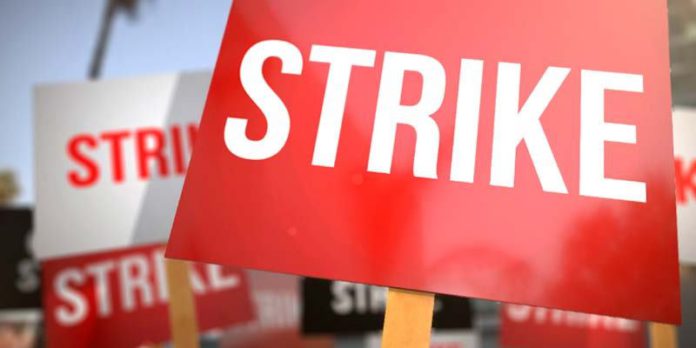
Workers in the public sector say they can no longer shoulder the burden brought onto them by the prevailing economic hardship in the country.
Staff of about 69 public sector institutions have therefore decided to put to vote a motion on whether or not to lay down their tools as a result of the situation.
Aggrieved executives of these entities have converged in Accra to determine their next line of action as the government engages in last-minute talks with the Labour Commission to ensure that the workers’ concerns are addressed.
The Public Utility Workers’ Union of TUC (PUWU), with a total of over 27,000 workers, are up in arms over government’s reluctance to heed their call for a Cost of Living Allowance (COLA).
They say their members are suffering financially and have been forced to cut back on their basic necessities just to make ends meet.
The unions, barring any hitches, will be the second major stakeholders to embark on a strike this week.
However, government is hoping that the brakes will be pulled on this move.
After the meeting, some members told JoyNews that a decision has been taken and will be communicated to the government by Monday, July 12.
On Monday, July 4, four teacher unions declared an indefinite nationwide strike over demands for the payment of the COLA.
The unions, comprising the Ghana National Association of Teachers (GNAT), the National Association of Graduate Teachers (NAGRAT), the Teachers and Educational Workers Union (TEWU) and the Coalition of Concerned Teachers Ghana (CCT), are demanding that the 20% of their basic salary be paid to them.
The concerns of the public workers are no different.
Meanwhile, President Akufo-Addo has tasked the board of the National Labour Commission to resolve all outstanding labour issues.
He wants the commission to be guided by the prevailing economic conditions in the country in their negotiations with organised labor.
Amid all this, government negotiators are at the doors of the International Monetary Fund (IMF) for a bailout to ensure that the deteriorating economy is salvaged in time.
